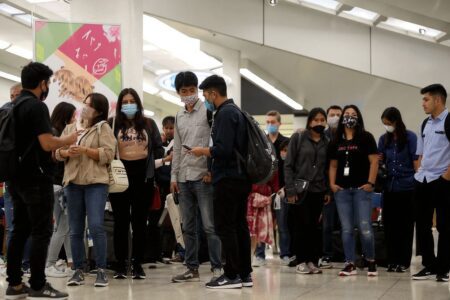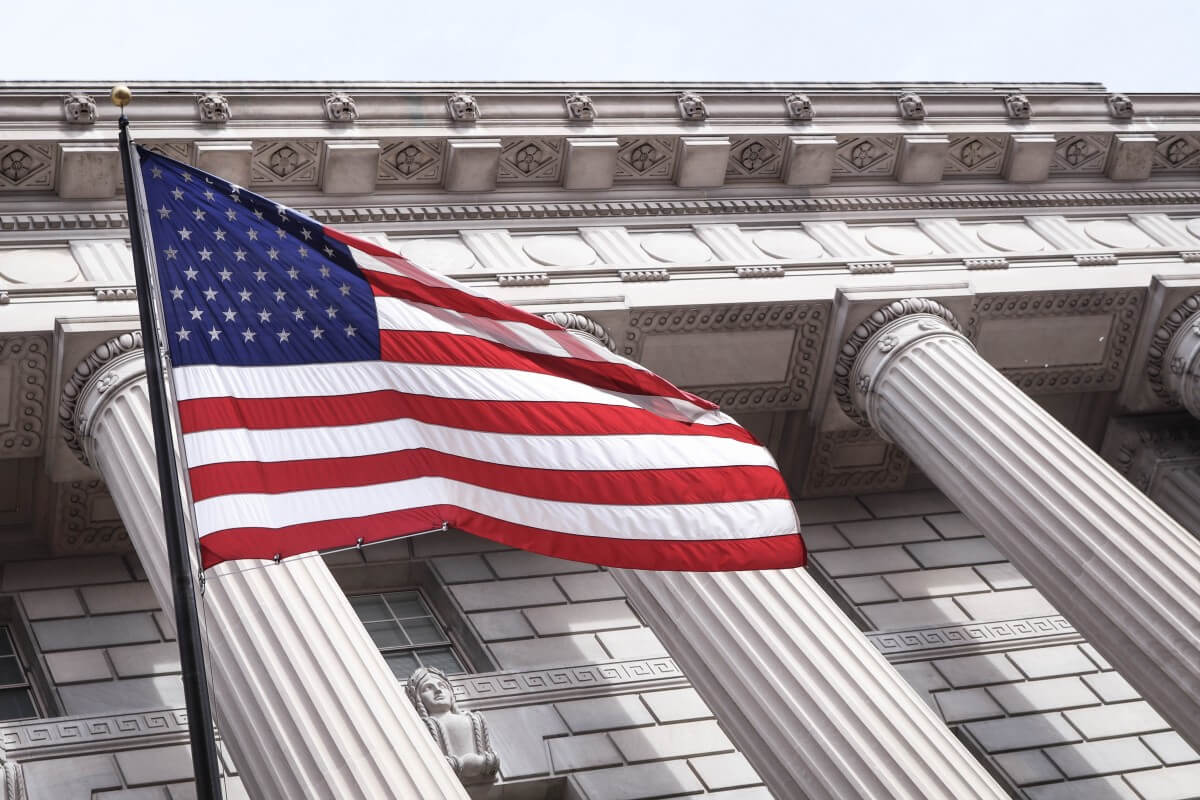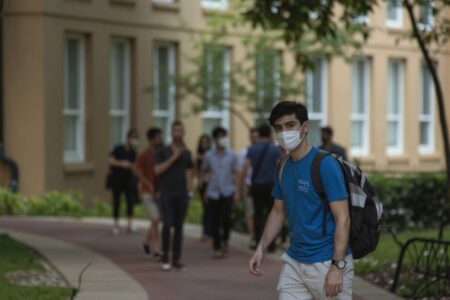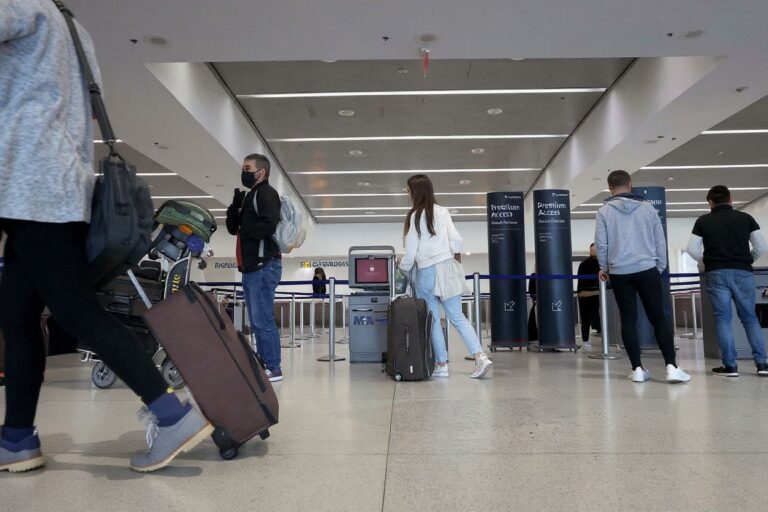
As flights everywhere were cancelled over the last few weeks, many students found themselves unable to leave the US during the Christmas period. With this came a daunting risk: that you could overstay your US visa.
This was the dilemma faced by the Chinese students who were on the Delta Air Lines flight from Seattle to Shanghai which turned back mid-way through the journey. Some found themselves with nowhere to stay as a result of this.
“I sublet my house in Pennsylvania and sold all my furniture before I flew to Seattle [to get the flight to Shanghai],” says Lisa, a recent Chinese graduate. “Right now, I have no fixed abode and my I-20 [student] visa has expired because I’ve already graduated.”
Another student named Alin found herself in a similar predicament. After her flight was cancelled, she faced the quandary of whether to spend the last of her money on an exorbitant airline ticket, COVID-19 tests and quarantine, or risk overstaying her visa. If she did decide to stay in the US, she would have to find a way to pay for a new visa as well as her tuition fees in the coming months.
“To go home or not go home, it’s a catch-22 for me either way,” she said.
Here’s a guide on what to do if this happens to you.
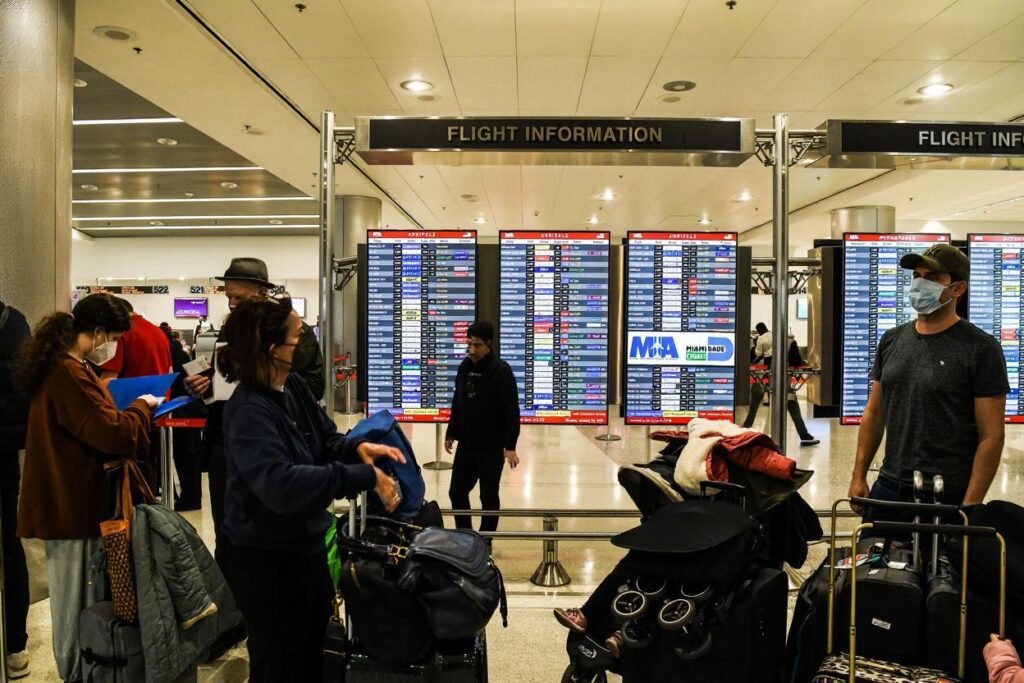 Students everywhere were affected by cancelled flights in the US.
Students everywhere were affected by cancelled flights in the US.
What happens when your overstay your US visa
To overstay your US visa is serious. The main consequences are:
- You risk being barred from returning to the US for three or ten years, depending on how long you overstayed;
- You may be restricted from an extension of stay, change of status or extension of status;
- Your existing visa will be automatically void;
- You would generally be unable to apply for a new visa except in your home country.
Much of this depends on how long you’ve overstayed for. It’s important that you are aware of the date shown on your Form I-94 Arrival/Departure Record issued by the US Customs and Border Protection. This is different from your visa expiry date, which simply states the last date you can use the document to enter the US.
If you are on an F-1 visa, your I-94 will probably say ‘D/S’ (duration of status) — meaning that your visa expires when you stop studying or complying with the terms of your F-1 visa.
Overstaying your visa may cause you to accrue unlawful presence. As the name suggests, this happens when you have a record of spending time in the US unlawfully — such as if you stay beyond your visa validity date.
There are a number of exceptions to unlawful presence, but for international students, perhaps the most relevant instance is if you have a pending application for either an adjustment of status (such as if you’re applying for a green card), an extension of status or a change of status.
If you have applied for Optional Practical Training (OPT) under your F-1 visa, you won’t be considered an overstayer. All other students will have a grace period of 60 days once their programme ends to legally stay in the US.
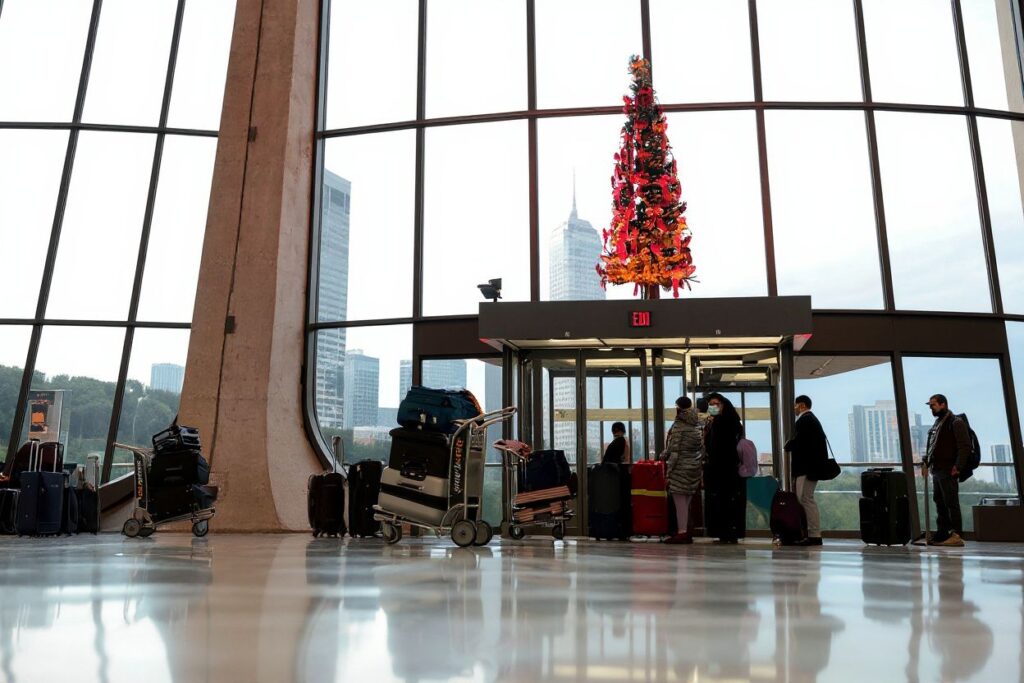 If you're stuck in the US and think you could overstay your US visa, you should apply for an extension and contact your embassy as soon as possible.
If you're stuck in the US and think you could overstay your US visa, you should apply for an extension and contact your embassy as soon as possible.
What can I do if my student visa is expiring but I can’t return home?
In this case, you should keep trying to depart the US at the earliest possible date. In the meantime, reach out to your country’s embassy and seek advice. You should also try contacting an immigration lawyer or the US Citizenship and Immigration Services (USCIS).
Regardless of this, USCIS generally understands that you may have to unexpectedly remain in the US beyond your authorised period of stay, and have listed a few options available to you. We’ve summarised them here:
Try to apply for an extension. If you can, you should apply for an extension of stay or change of status right away. Processing times may still take longer than usual, but filing a prompt extension will show USCIS that you intended to avoid overstaying your visa. You can do this online here.
File your paperwork on time. This is extremely important. If you do, your status in the US will automatically change to ‘pending’, which means that you won’t be accruing time for unlawful presence. On top of that, your employer authorisation may be automatically extended for up to 240 days if you’re under the OPT scheme, so that you can keep working in the meantime.
Late applications may be given some flexibility due to extraordinary circumstances. Again, USCIS understands that you might not be able to file a timely request to extend or change your status because of circumstances outside of your control, such as those caused by COVID-19. In this case, USCIS may consider you under Special Situations and excuse your inability to file your application on time.
There is no guarantee that you will be considered under this, as USCIS evaluates these situations on a case-by-case basis. You may be asked to provide evidence that the pandemic has directly affected your ability to apply on time. Whatever it is, if you think you will be stuck in the US after your visa has expired, you should file for an extension or change of status as soon as possible.
We hope that you found this guide useful. For more in-depth information on what to do if you risk overstaying your visa, check out this guide here.








